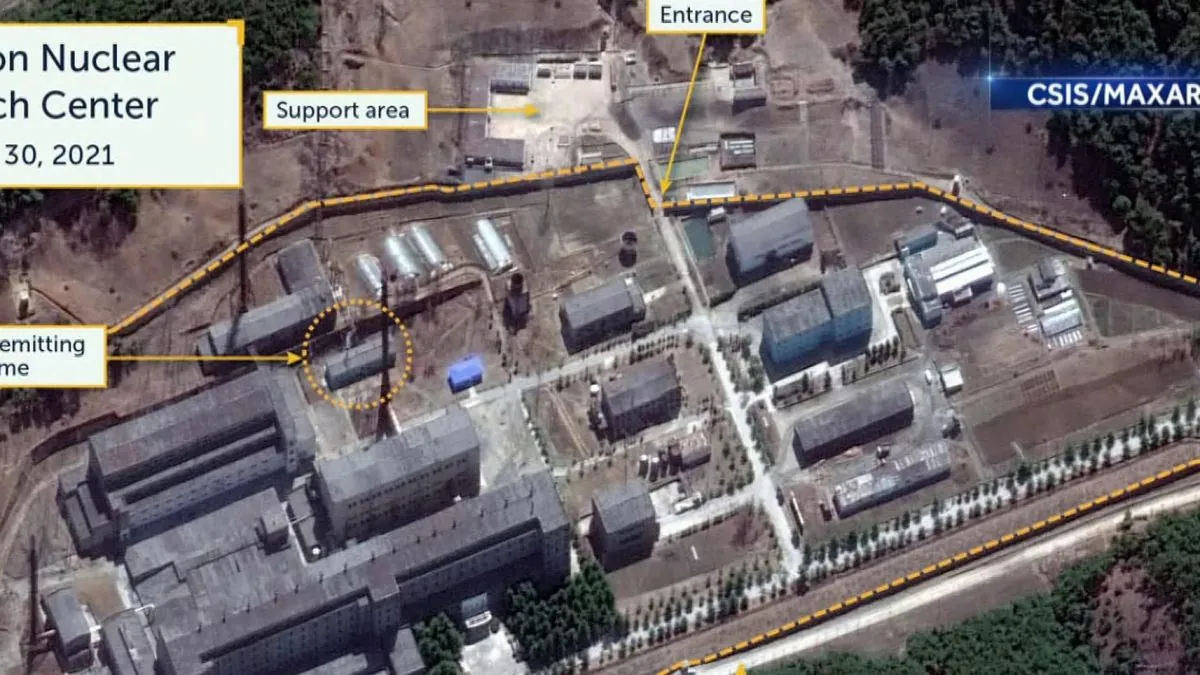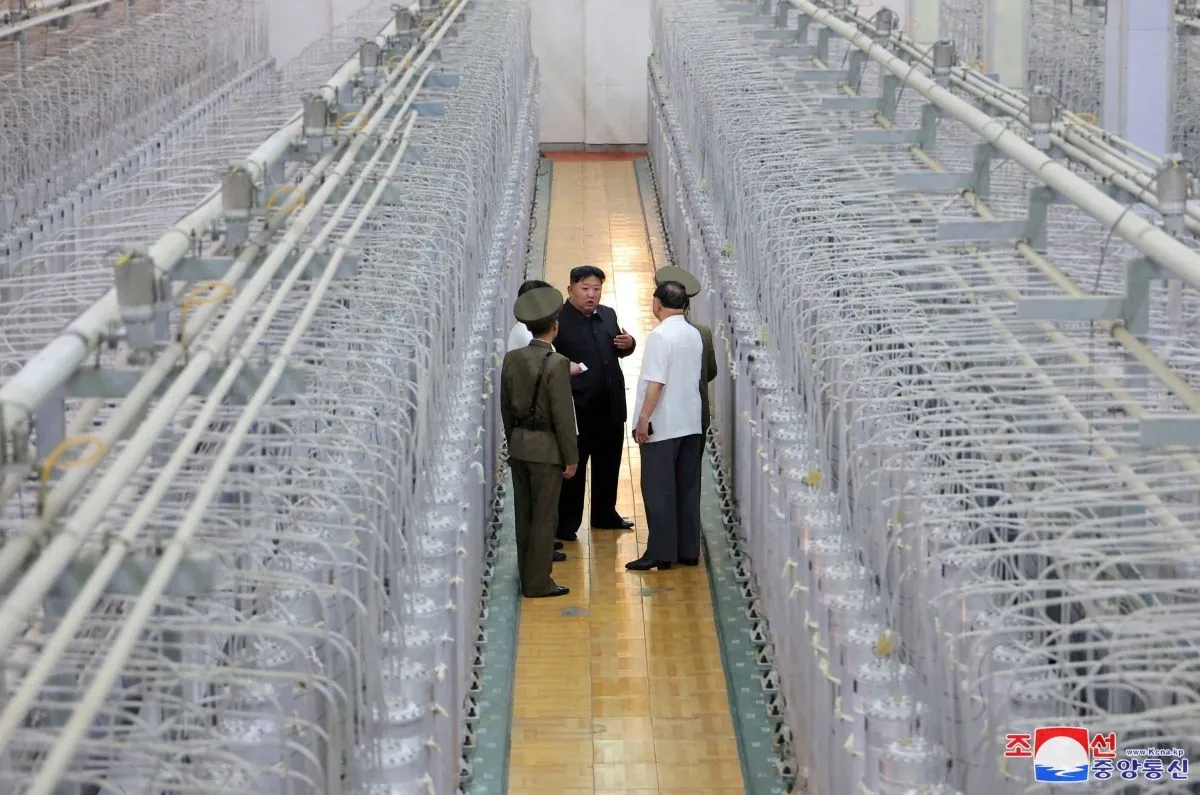North Korea's Nuclear Arsenal Grows, Seventh Test Possible After U.S. Election
North Korea possesses enough fissile material for multiple nuclear weapons, with a potential test looming post-U.S. election. Pyongyang's nuclear ambitions continue to raise international concerns.

Recent intelligence reports suggest that North Korea has amassed sufficient plutonium and uranium to produce a substantial number of nuclear weapons. This information, shared by a South Korean lawmaker, underscores the ongoing concerns about Pyongyang's nuclear capabilities.
The lawmaker, citing the country's intelligence agency, indicated that North Korea might conduct its seventh nuclear test following the U.S. presidential election on November 5, 2024. This potential test would mark a significant escalation in the country's nuclear program, which began in the 1950s with Soviet assistance.
A July 2024 report by the Federation of American Scientists estimated that Pyongyang may have produced enough fissile material to construct up to 90 nuclear warheads, although the actual number assembled is likely closer to 50. This assessment highlights the rapid growth of North Korea's nuclear arsenal since its first test in 2006.
Kim Jong Un's recent visit to a uranium enrichment facility, as reported by state media, is seen as a strategic message to Washington. This rare public disclosure of such a visit may also serve domestic purposes, potentially aiming to boost morale amid challenging economic conditions.

Pyongyang maintains that its nuclear weapons and ballistic missiles are necessary deterrents against perceived threats from the United States and its allies. This stance has been a consistent narrative since the country withdrew from the Nuclear Non-Proliferation Treaty in 2003.
The Yongbyon Nuclear Scientific Research Center, North Korea's main nuclear facility, has been central to the country's nuclear ambitions. The program has accelerated under Kim Jong Un's leadership, with claims of developing a hydrogen bomb in 2017 and efforts to miniaturize nuclear warheads.
International responses to North Korea's nuclear activities have included multiple UN Security Council resolutions and sanctions. However, diplomatic efforts like the Six-Party Talks, aimed at denuclearization, have been stalled since 2009.
An upcoming session of the North Korean Supreme People's Assembly on October 7, 2024, may result in constitutional amendments, potentially redefining the country's relationship with South Korea. This follows a January 2024 meeting where Kim Jong Un called for identifying South Korea as the "primary foe" in the constitution.
North Korea's nuclear program remains a significant challenge for global non-proliferation efforts and a major source of tension in East Asia. As the international community continues to grapple with this issue, the possibility of further nuclear tests and missile developments keeps the region on high alert.
"It was said that the economic situation is dire, so it could be interpreted as an act to instill confidence in residents."
The ongoing developments in North Korea's nuclear program underscore the complex interplay of international relations, regional security, and domestic politics in shaping the country's nuclear ambitions.


































